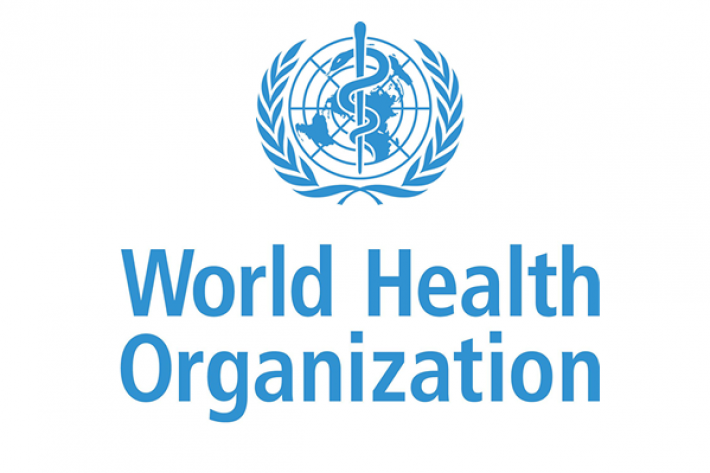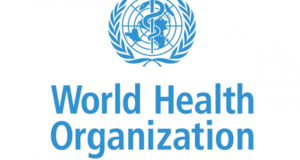
World Health Organization
The WHO chief, Tedros Adhanom Ghebreyesus recently revealed this via a video clip posted to Twitter, and the world has been reacting.
According to him, Christians should not forget when they made heart-wrenching sacrifices by staying away from loved ones amid the pandemic, as there is no better gift than the gift of life and health.
He added that despite the several losses in 2020, coronavirus vaccines are presently offering the world a way out of this tragedy, but we all still need to be careful and vigilant.
His words, “As 2020 draws to an end, a pandemic of historic proportions is preventing many of us from celebrating in the ways we would like,”
“Instead, hundreds of millions of people are today making great, heart-wrenching sacrifices by staying apart to stay safe.
“But in doing so, they are giving the most precious gifts: the gifts of life and health.”
“All around the world, throughout this most trying of years, we have seen over and over again the sacrifices of so many people to protect and preserve life,”
“We must not squander their sacrifices, nor those made by so many families who, this holiday season, will sit at family tables missing a familiar face.
“Despite so much loss, we have built so much hope. Vaccines are offering the world a way out of this tragedy. But it will take time for the whole world to be vaccinated.”
What do you think?
Coronaviruses are a group of related viruses that cause diseases in mammals and birds. In humans, coronaviruses cause respiratory tract infections that can be mild, such as some cases of the common cold (among other possible causes, predominantly rhinoviruses), and others that can be lethal, such as SARS, MERS, and COVID-19. Symptoms in other species vary: in chickens, they cause an upper respiratory tract disease, while in cows and pigs they cause diarrhea. There are yet to be vaccines or antiviral drugs to prevent or treat human coronavirus infections.
Coronaviruses constitute the subfamily Orthocoronavirinae, in the family Coronaviridae, order Nidovirales, and realm Riboviria. They are enveloped viruses with a positive-sense single-stranded RNA genome and a nucleocapsid of helical symmetry. The genome size of coronaviruses ranges from approximately 27 to 34 kilobases, the largest among known RNA viruses. The name coronavirus is derived from the Latin corona, meaning “crown” or “halo”, which refers to the characteristic appearance reminiscent of a crown or a solar corona around the virions (virus particles) when viewed under two-dimensional transmission electron microscopy, due to the surface covering in club-shaped protein spikes.
Human coronaviruses were first discovered in the late 1960s. The earliest ones discovered were an infectious bronchitis virus in chickens and two in human patients with the common cold (later named human coronavirus 229E and human coronavirus OC43). Other members of this family have since been identified, including SARS-CoV in 2003, HCoV NL63 in 2004, HKU1 in 2005, MERS-CoV in 2012, and SARS-CoV-2 (formerly known as 2019-nCoV) in 2019. Most of these have involved serious respiratory tract infections.
![DJ Baddo – All Of Me Remix ft John Legend [AuDio]](https://www.naijavibe.net/wp-content/uploads/wordpress-popular-posts/94409-featured-40x40.jpg) DJ Baddo – All Of Me Remix ft John Legend [AuDio]
DJ Baddo – All Of Me Remix ft John Legend [AuDio] ![Drake - One Dance ft Wizkid & Kyla [AuDio]](https://www.naijavibe.net/wp-content/uploads/wordpress-popular-posts/124692-featured-40x40.jpg) Drake – One Dance ft Wizkid & Kyla [AuDio]
Drake – One Dance ft Wizkid & Kyla [AuDio] ![Mr. Charis - All Back ft Zouwrah [AuDio]](https://www.naijavibe.net/wp-content/uploads/wordpress-popular-posts/67331-featured-40x40.jpg) Mr. Charis – All Back ft Zouwrah [AuDio]
Mr. Charis – All Back ft Zouwrah [AuDio]  Dj Kamol – Crazy Gyration ft Skailey Normal [AuDio]
Dj Kamol – Crazy Gyration ft Skailey Normal [AuDio] ![Davido - Aye [AuDio]](https://www.naijavibe.net/wp-content/uploads/wordpress-popular-posts/38417-featured-40x40.jpeg) Davido – Aye [AuDio]
Davido – Aye [AuDio]  Sauti Sol – Live and Die in Afrika [Album]
Sauti Sol – Live and Die in Afrika [Album] ![Burna Boy – Yawa Dey [AuDio]](https://www.naijavibe.net/wp-content/uploads/wordpress-popular-posts/20589-featured-40x40.jpg) Burna Boy – Yawa Dey [AuDio]
Burna Boy – Yawa Dey [AuDio] ![Slyde - Banana (Remix) ft Timaya [AuDio]](https://www.naijavibe.net/wp-content/uploads/wordpress-popular-posts/71004-featured-40x40.jpg) Slyde – Banana (Remix) ft Timaya [AuDio]
Slyde – Banana (Remix) ft Timaya [AuDio] ![K-Solo - Yolo ft Klever Jay, Legely, Tea Jazz & Small Doctor [AuDio]](https://www.naijavibe.net/wp-content/uploads/wordpress-popular-posts/127832-featured-40x40.jpg) K-Solo – Yolo ft Klever Jay, Legely, Tea Jazz & Small Doctor [AuDio]
K-Solo – Yolo ft Klever Jay, Legely, Tea Jazz & Small Doctor [AuDio]  Victony, Don Toliver & Rema – Soweto
Victony, Don Toliver & Rema – Soweto  Tekno – Alleluya [AuDio + Viral ViDeo]
Tekno – Alleluya [AuDio + Viral ViDeo]  Seyi Shay & Yemi Alade – Pempe
Seyi Shay & Yemi Alade – Pempe
 NaijaVibe NaijaVibe | Download Latest Nigerian Music & Mp3s
NaijaVibe NaijaVibe | Download Latest Nigerian Music & Mp3s


